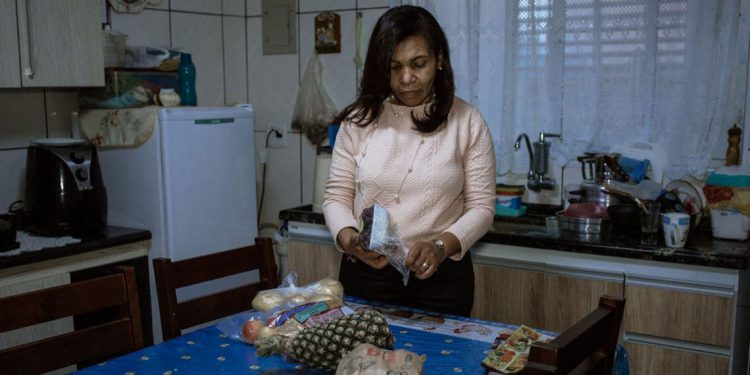Food costs force families to scrimp
Bloomberg reports that prices for food have been surging in much of the world, forcing families to make tough decisions about their diets. Meat is often the first to go, ceding space to less expensive proteins such as dairy, eggs, or beans. In some households, a glass of milk has become a luxury reserved only for children; fresh fruit, once deemed a necessity, is now a treat.
Reporters interviewed four families – in Nigeria, Brazil, India, and the US – highlighting the trade-offs middle- and working-class households are having to make to feed themselves. Food costs force families to scrimp
Central banks often disregard food and fuel inflation when setting policy because they’re the most volatile categories in the typical basket of consumer goods and services.
The sustained increase in prices for basic staples is making some governments nervous. Russia, one of the world’s top grain exporters, began taxing wheat exports in February to stem rising prices at home, while Argentina in May temporarily banned beef sales abroad for the same reason.
The surge has stirred memories of 2008 and 2011, respectively, when spikes triggered food riots in more than 30 nations across Africa, Asia, and the Middle East and contributed to political uprisings in the Arab Spring.
“Food fundamentally touches all of us,” says Cullen Hendrix, nonresident senior fellow at the Peterson Institute for International Economics, a Washington-based think tank. “Everybody knows about the price of food and knows when it’s increasing, regardless of whether or not they have any interest in politics.” For most households, relief is scant.























